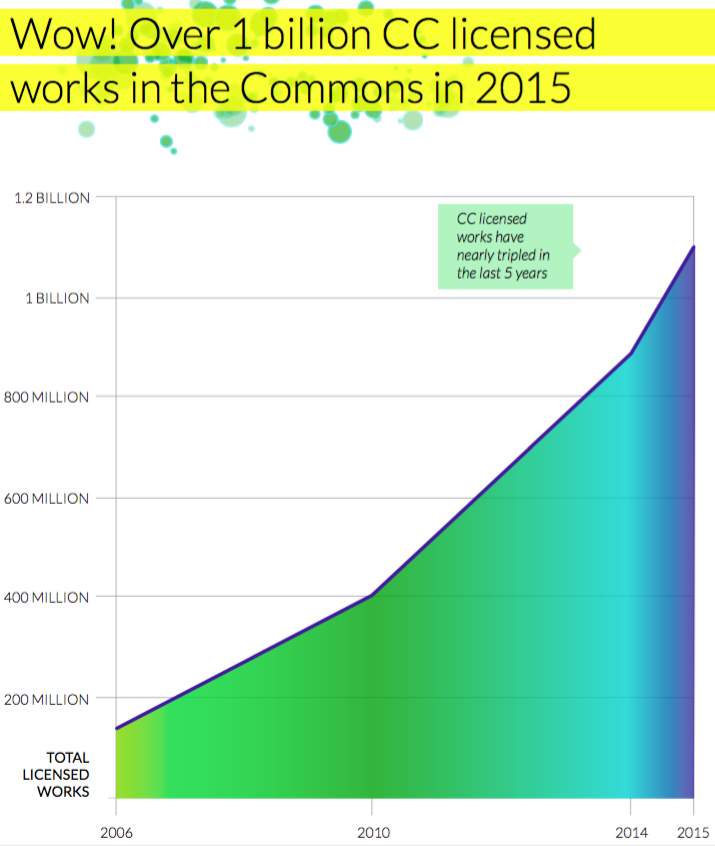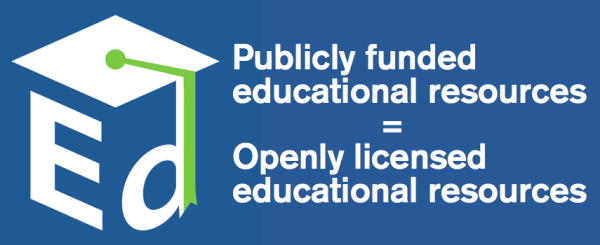State of the Commons: 1 Billion Creative Commons Works
mardi 8 décembre 2015 à 13:00I’m proud to share with you Creative Commons’ 2015 State of the Commons report, our best effort to measure the immeasurable scope of the commons by looking at the CC licensed content, along with content marked as public domain, that comprise the slice of the commons powered by CC tools.

Creative Commoners have known all along that collaboration, sharing, and cooperation are a driving force for human evolution. And so for many it will come as no surprise that in 2015 we achieved a tremendous milestone: over 1.1 billion CC licensed photos, videos, audio tracks, educational materials, research articles, and more have now been contributed to the shared global commons.
Our small team continues to work to grow and improve the commons for everyone. We’re proud of our accomplishments, but there’s more to do and we need your help. Our goal is to raise $30,000 over the next week to celebrate the release and accomplishments of our 2015 State of the Commons report. Will you make a contribution of $10, $25, $50 or more today?
As we grow the size and scope of the commons, we are working hard to ensure that it becomes a vibrant, usable commons — full of collaboration and gratitude. We need our contributors to be able to talk to each other, find new content, give feedback, offer their thanks and encouragement, get analytics, and build networks and communities around the content they are creating. We want to light up the commons, and we need you to join us.
CC is a global charity that relies on our generous community of supporters like you. Kick off our year-end campaign strong by helping us meet our first benchmark: $30,000 over the next week to celebrate the release and accomplishments of our 2015 State of the Commons report.
Make your contribution to Creative Commons today.
Thank you for being a part of this.
With thanks,
Ryan Merkley
CEO, Creative Commons
@ryanmerkley
Read the full report: stateof.creativecommons.org/2015.
Read the press release.



